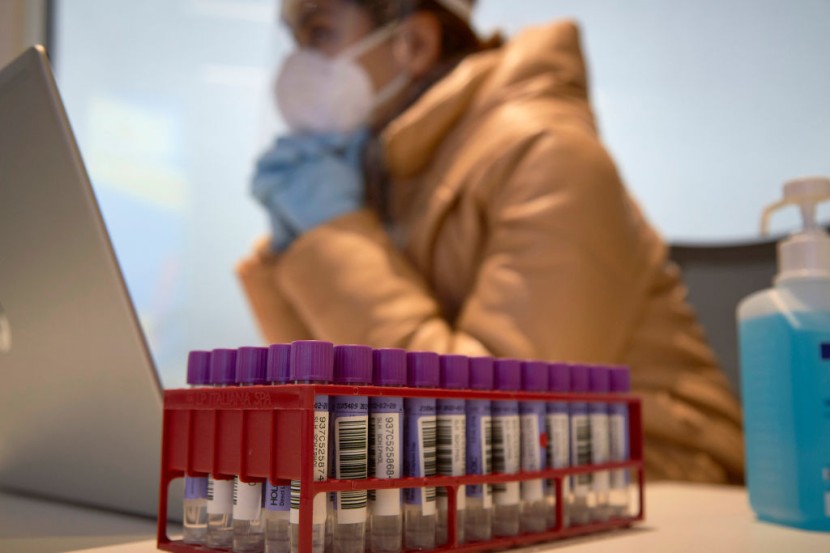
The likelihood of reinfection from the Omicron COVID-19 variant is at least three times higher than any prior variants, according to South African scientists.
Between March 2020 and November 27, 2021, researchers examined at nearly 2.8 million positive coronavirus infections and found 35,670 possible reinfections in the preliminary analysis.
According to the group's findings, increases in initial infection were detected following the introduction of both the beta and delta genotypes, but there was no matching rise in the reinfection risk.
Omicron, vaccine protection
Furthermore, during COVID-19 waves due to the beta and delta variants, the predicted hazard ratio for reinfection over primary infection was lower in the first wave. Other variants have been known to induce reinfection, and earlier this year in Israel, numerous people who were reinfected with the beta variant were discovered, Fox News reported.
Juliet Pulliam, a South African epidemiologist and one of the study's authors, tweeted on Thursday that the researchers "cannot make any assessment of whether Omicron also evades vaccine-derived immunity" because they didn't have information about the vaccination status of individuals in the data set.
The next step is to assess the amount of the variant in question's immunological escape for both natural and vaccine-derived immunity, as well as its transmissibility in comparison to other variants, according to Pulliam.
The COVID-19 Omicron variant has been found in 38 nations, up from 23 two days earlier, with early evidence showing the strain is more infectious than Delta, according to the World Health Organization.
The spike protein, which is the method through which Omicron binds to human cells, contains 30 mutations. According to the WHO, some of these alterations are linked to increased transmission and the capacity to evade immune defense.
In comparison to previous COVD-19 variants, South African scientists discovered this week that Omicron is related with a "significant potential" to reinfect persons who had had COVID-19. Per NBC News, the paper has not yet been peer-reviewed by the South African Center for Epidemiological Modelling and Analysis and the National Institute of Communicable Diseases.
The degree of infection induced by Omicron is yet unknown, according to Maria Van Kerkhove, the WHO's COVID-19 technical lead. Early reports of modest symptoms in some of the earliest cases where it was detected were based on a cluster of university students who are younger and had more mild symptoms than older individuals.
"Clearly, the virus does appear to be transmitting efficiently," said Dr. Mike Ryan, executive director of the WHO's health emergency program. Ryan said that public health experts originally noticed minor cases with the alpha and delta variants as well. If the variant does, in fact, produce more severe illness, it might take two weeks to notice higher mortality linked to Omicron.
Omicron variant spreads in the US
COVID-19's Omicron variant, which had gone unknown in the United States until the middle of this week, had been identified in at least six states by the end of Thursday, demonstrating once again how viral mutations may circumnavigate the globe quickly and easily.
Tests revealed that the Omicron variant had infected at least five persons in the New York City metropolitan area, as well as a man from Minnesota who had visited an anime convention in Manhattan in late November, just a day after the first known US case was discovered in California.
Officials said the variant infected a Colorado woman who had recently visited southern Africa, a Hawaii resident with no recent travel history, and another California person who traveled to South Africa last month.
Six cases were discovered at the station, according to Nebraska health officials, with one person presumably infected during overseas travel to Nigeria. Only one of the six people was vaccinated, and none of them had to go to the hospital. A city resident tested positive for the new variant later that day, according to the Philadelphia Department of Public Health.
Each state's health experts indicated there was no need to be alarmed. However, because the cases were so widespread, including some involving persons who hadn't been away from home in a long time, the variant was likely already circulating domestically in some regions of the United States, as per ABC Chicago.
Related Article: US Records First Omicron Variant Case; Here's What We Know So Far
@YouTube
© 2025 HNGN, All rights reserved. Do not reproduce without permission.








